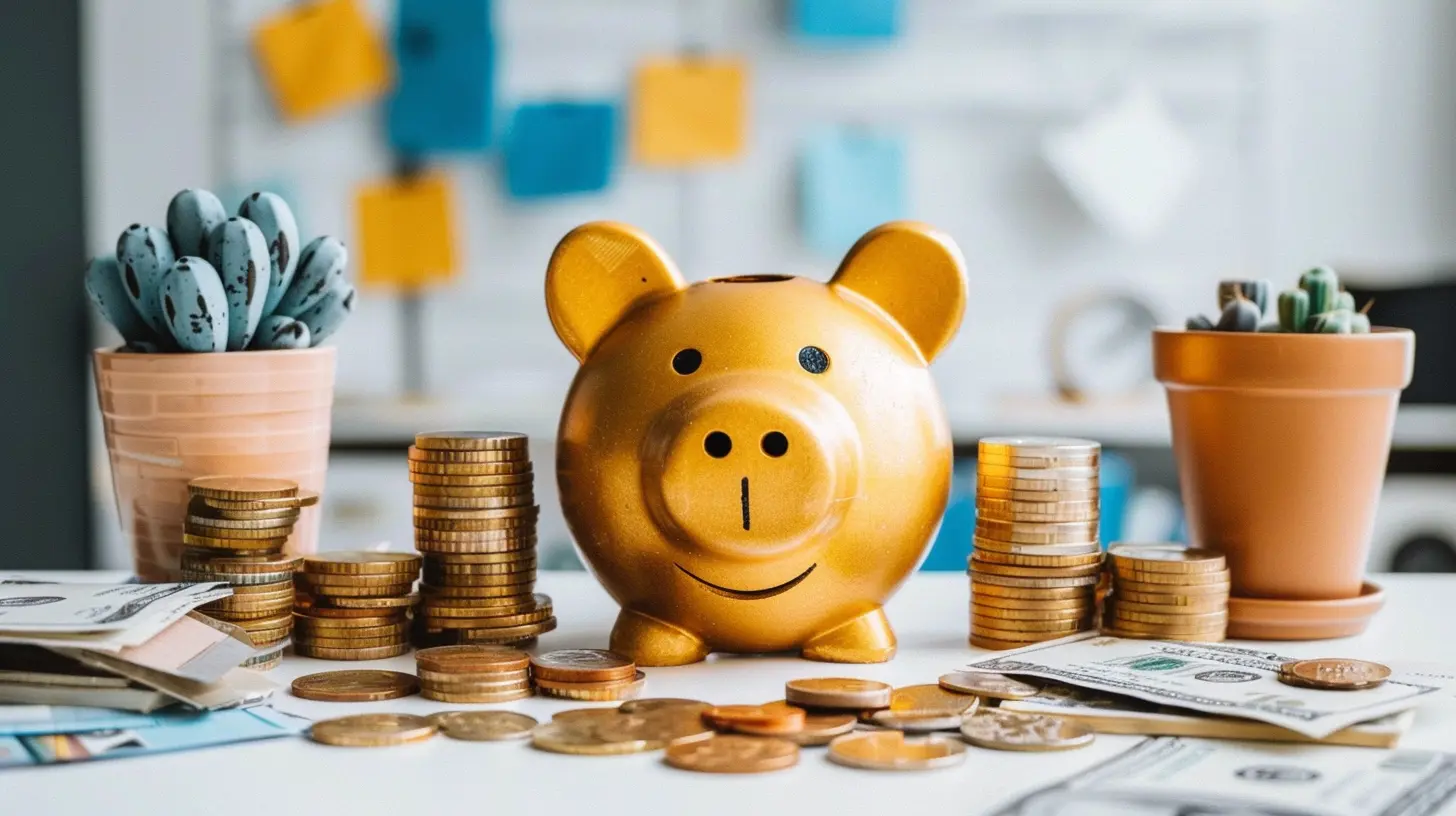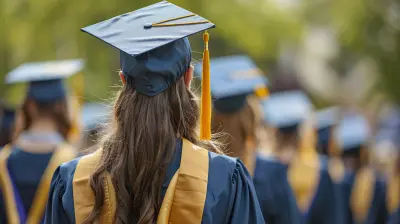Emergency Funds: A Must-Have for Wealth Creators
18 April 2025
Ever heard the saying, "Expect the unexpected"? Well, in the world of personal finance, truer words have never been spoken. Life has a way of throwing curveballs—whether it’s a sudden job loss, a medical emergency, or an urgent car repair. That’s where an emergency fund comes in, acting like a financial safety net ready to catch you when things go south.
But here’s the kicker: most people either don’t have one or don’t save enough. If wealth creation is your goal, an emergency fund isn’t just nice to have—it’s absolutely essential. Let’s dive into why and how this financial buffer can make or break your journey to financial success.

What Is an Emergency Fund?
An emergency fund is a stash of money set aside specifically for unexpected expenses. Think of it as your financial shock absorber—it helps you avoid taking on debt when life throws you a curveball.This isn’t money for planned purchases like a vacation or a new car. It’s strictly for real emergencies, such as:
- Sudden medical expenses
- Job loss or reduced income
- Urgent home or car repairs
- Unexpected family emergencies
Without an emergency fund, you might be forced to use high-interest credit cards, dip into investments, or take out loans—all of which can derail your financial progress.

Why Is an Emergency Fund Crucial for Wealth Creation?
You might be wondering, “Can’t I just rely on credit cards or investments in case of an emergency?” While that might seem like an option, here’s why it’s a risky strategy:1. Prevents You from Dipping into Investments
If you’re on the path to wealth creation, chances are you’re investing in stocks, real estate, or other income-generating assets. However, without an emergency fund, you may have to cash out these investments when unexpected expenses arise.Selling investments prematurely can hurt in two ways:
- You might sell during a market downturn, locking in losses.
- You miss out on compound growth, slowing down your wealth-building journey.
2. Keeps You Out of High-Interest Debt
Credit cards and payday loans might seem like a short-term fix, but they come with steep interest rates—sometimes 20% or more! Borrowing money in an emergency can turn a small financial hiccup into a long-term financial burden.An emergency fund eliminates the need to borrow, keeping you financially independent and debt-free.
3. Provides Peace of Mind
Imagine going to bed each night without worrying about how you’d cover an unexpected expense. Having an emergency fund means you can handle life’s surprises without stress or desperation. Peace of mind is priceless—it allows you to focus on long-term financial goals without being constantly anxious about “what if” scenarios.4. Gives You Financial Flexibility
Having a financial cushion means you won’t be forced into bad financial decisions. For example, if you lose your job, you won’t have to take the first job that comes your way—you can afford to wait for the right opportunity.5. Acts as a Wealth-Building Tool
Some people think keeping money in an emergency fund is a waste because it doesn’t earn high returns. However, avoiding debt and protecting your investments are just as valuable. In fact, having an emergency fund supports wealth creation by keeping your financial plan on track.
How Much Should You Save in Your Emergency Fund?
There’s no one-size-fits-all answer, but a good rule of thumb is to have at least three to six months' worth of living expenses saved up.However, your ideal emergency fund amount depends on factors like:
- Job stability – If you're in a stable career, three months might be enough. If you’re a freelancer or self-employed, aim for six months or more.
- Monthly expenses – The more financial responsibilities you have, the larger your emergency fund should be.
- Dependents – If you have a family relying on your income, consider a bigger buffer.
- Risk tolerance – If you sleep better knowing you have extra cash set aside, saving more isn’t a bad idea.

Where Should You Keep Your Emergency Fund?
Your emergency fund should be easily accessible but not so easy that you’re tempted to dip into it for non-urgent expenses. Here are a few options:1. High-Yield Savings Account
A high-yield savings account gives you liquidity while also earning a small return. It keeps your money safe while allowing quick access when needed.2. Money Market Account
These accounts often come with slightly higher interest rates than traditional savings accounts, along with check-writing or debit card access.3. Certificates of Deposit (CDs) (Laddered Approach)
If you don’t need immediate access to the full amount, you could place some of your emergency fund in short-term CDs. Just ensure you ladder them correctly to avoid penalties for early withdrawal.Avoid putting your emergency fund in stocks, real estate, or other volatile investments—your goal is stability and accessibility, not growth.
How to Build Your Emergency Fund – Even on a Tight Budget
If you’re thinking, “I barely have anything left at the end of the month—how can I save for an emergency fund?” don’t worry. Here are some practical steps to get started:1. Start Small
You don’t need thousands right away. Even saving $10 or $20 a week adds up over time. The key is to be consistent.2. Automate Your Savings
Set up an automatic transfer from your checking account to your emergency fund each payday. Treat it like a bill you must pay.3. Cut Unnecessary Expenses
Take a hard look at your spending. Can you skip that daily coffee shop visit? Cancel unused subscriptions? Redirect these small amounts into your emergency savings.4. Use Windfalls Wisely
Got a work bonus? Tax refund? Side hustle income? Instead of spending it all, put a chunk into your emergency fund.5. Sell Unused Items
Look around your home—chances are you have things you no longer use. Sell them online and put the money toward your emergency savings.
Common Mistakes to Avoid
While building an emergency fund is straightforward, it’s easy to make mistakes that can slow your progress. Watch out for these pitfalls:1. Confusing Emergency Funds with Savings for Other Goals
Your emergency fund is strictly for unforeseen expenses—not vacations, shopping sprees, or planned costs. Keep it separate.2. Keeping It All in Cash
While it's essential to have quick access, keeping your entire emergency fund as cash at home isn’t smart. A bank account is safer and earns interest.3. Stopping Once You Reach a Certain Amount
Emergencies can vary in size, so even if you hit your initial target, keep contributing when possible.4. Using It for Non-Emergencies
A "sale" at your favorite store is NOT an emergency. Be disciplined—only use your fund when necessary.Final Thoughts
An emergency fund isn’t just a safety net—it’s a wealth-building tool that protects your financial future. It keeps you from going into debt, prevents you from cashing out investments too soon, and gives you peace of mind.The best part? It doesn’t take much to get started. Even small, consistent contributions can grow into a solid financial cushion over time.
So, if you don’t have an emergency fund yet, start today. Your future self will thank you.
all images in this post were generated using AI tools
Category:
Wealth CreationAuthor:

Uther Graham
Discussion
rate this article
6 comments
Barbara Thornton
This article makes an essential point about emergency funds! I'm curious: how do successful wealth creators balance their emergency savings with investment opportunities? It would be interesting to see real-life examples of this strategy in action. Can you share any?
May 11, 2025 at 2:55 AM

Uther Graham
Thank you for your comment! Successful wealth creators typically maintain 3-6 months' worth of expenses in emergency savings while allocating additional funds to investments. For example, many established entrepreneurs keep a robust emergency fund to cover business fluctuations, ensuring they can seize investment opportunities without compromising their financial safety net.
Melissa McElhinney
Great article! Building an emergency fund is essential for financial stability and peace of mind. It's a crucial step in fostering a strong foundation for wealth creation. Thank you for sharing!
April 25, 2025 at 4:50 AM

Uther Graham
Thank you for your thoughtful comment! I'm glad you found the article valuable. Building an emergency fund truly is a vital step toward financial security and wealth creation.
Antonia Rodriguez
Building an emergency fund is a vital step toward financial security. It empowers us to confidently pursue our wealth-creation dreams.
April 24, 2025 at 3:22 AM

Uther Graham
Absolutely! An emergency fund is essential for financial stability and supports our journey toward building wealth.
Elizabeth Kearns
Great insights on financial preparedness!
April 22, 2025 at 11:42 AM

Uther Graham
Thank you! I'm glad you found the insights valuable!
Raelyn McVey
This article highlights an essential topic! I'm intrigued by how emergency funds can act as a safety net for wealth creators. How do you recommend balancing savings with investing for growth?
April 20, 2025 at 11:46 AM

Uther Graham
Thank you for your feedback! It's crucial to prioritize building an emergency fund first—aim for 3-6 months of expenses. Once that's established, consider allocating a portion of your savings towards investments for growth, balancing your risk tolerance and financial goals.
Colette McQuillan
Great insights! Essential for financial security!
April 18, 2025 at 10:30 AM

Uther Graham
Thank you! I’m glad you found the insights valuable for financial security.




